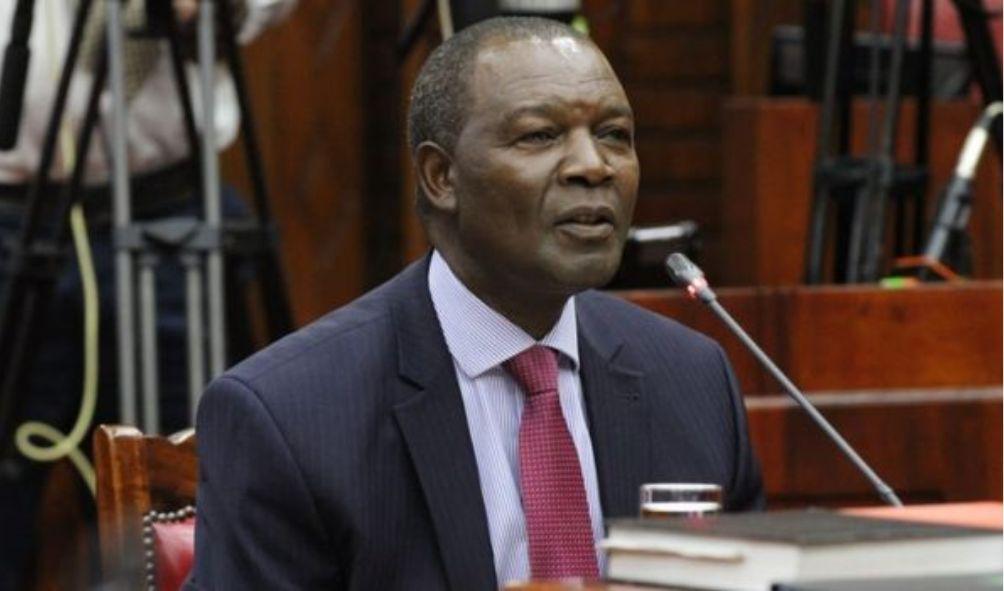Njuguna Ndung’u Takes Center Stage at 3 pm: A Defining Moment for Kenyans in Parliament
Treasury Cabinet Secretary Njuguna Ndung’u will make the short trip from the National Treasury building. To Parliament on Thursday at 3 p.m. to present the first budget of the Kenya Kwanza administration.
The omnibus budget, estimated to be Sh3.599 trillion and the largest in Kenya’s history. Will detail the government’s spending plans for the fiscal year beginning on July 1.
President William Ruto intends to spend Sh240.7 billion more than his predecessor. Whose last budget before amendments totaled Sh3.359 trillion (supplementary budget).
Total revenues are projected to increase by more than Sh431 billion. From an estimate of Sh2.529 trillion at the beginning of the previous fiscal year to Sh2.894 trillion.
Ordinary revenue, which represents Kenya Revenue Authority (KRA) collections. Is estimated at Sh2.571 trillion compared to Sh2.146 trillion last year. Indicating a projected increase in tax revenue of Sh425.1 billion.
Meanwhile, projections for receipts from ministries. Also known as ministerial allocations in aid, are largely unchanged from previous estimates, at Sh332.5 billion versus Sh320.8 billion.
The Kwanza administration in Kenya will support new tax policy measures to increase revenue collection. Such as the implementation of the country’s first national tax policy. Based on certainty and consistency in tax legislation and management of tax expenditure.
ALSO READ: Hustler Base Disillusioned as President Ruto Implements Tax Hikes
Technology covering the integration of the KRA’s tax systems and those of taxpayers. Will also support revenue and tax reforms; the tax authority has already linked its systems with those of gaming companies as of early June.
“By leveraging on the automation of systems for all key government entities, integrating the KRA’s tax systems with critical government systems to enable seamless information sharing for a 360-degree view of taxpayers’ economic transactions, and enhancing the KRA’s capacity in big data analytics to drive compliance interventions,” stated the National Treasury in its budget summary for the 2023-24 fiscal year.
On the expenditure side. The new administration has increased spending across the board. As it attempts to implement its much-publicized bottom-up economic transformation agenda for the first time.
The agenda prioritizes lowering the cost of living, increasing employment. Enhancing social security, broadening the tax base to generate more revenue, and achieving a more equitable income distribution.
Agriculture, micro, small, and medium-sized businesses, housing and settlements, healthcare, and creative industries have been identified as key areas of focus for the new administration.
In contrast, President Uhuru Kenyatta’s last budget. Sought to prioritize the four major drivers and enablers at the time: supporting manufacturing to create jobs. Improving food security, providing universal health coverage, and providing affordable and decent housing.
ALSO READ: Stand with Kenyans: Azimio Calls on MPs to Support the Cause
Dr. Ruto’s first budget will outline key expenditure reforms. Aimed at improving the efficiency of public spending, including the elimination of non-priority spending. The elimination of costly and unsustainable consumption subsidies, and the expansion of public-private partnership financing for commercially viable projects.
In Ruto’s first full budget, recurrent expenditures are projected to increase by Sh206.6 billion to Sh2.478 trillion, while development expenditures are projected to increase by Sh12.5 billion to Sh681.1 billion.
There will be an increase of Sh22.7 billion in transfers to counties, including Sh385.4 billion in equitable sharing and Sh44.3 billion in conditional transfers.
Borrowing In contrast to the previous administration, the new administration anticipates a reduction in borrowing as it relies on increased revenue collection to meet its spending needs.
The fiscal balance after grants, which represents the fiscal deficit or financing need, has decreased from Sh862.9 billion to Sh663.5 billion.
Consequently, net external borrowing is anticipated to decline to Sh131.5 billion from a target of Sh280.7 billion in June of last year.
ALSO READ: Finance Bill 2023 Surges Ahead: Overwhelming Support as 176 MPs Back, 81 Oppose in Second Reading
By the same metric, domestic borrowing, excluding debt repayments, is projected to decrease by Sh50,2 billion, from Sh582,2 billion previously to Sh532 billion.
The new government intends to prioritize funding from low-cost external sources, such as the International Monetary Fund and the World Bank, to control the cost of borrowing over its term.
“The government will maximize the use of official external sources for loans on concessional terms, while non-concessional or commercial external borrowing will be limited to projects with high financial and economic returns,” the Treasury added.
“These sources will be diversified by the government maintaining its presence on international and domestic capital markets, including exploring green and climate change financing options.”
Njuguna Ndung’u Takes Center Stage at 3 pm: A Defining Moment for Kenyans in Parliament
HEY READER. PLEASE SUPPORT THIS SITE BY CLICKING ADS. DON’T FORGET TO HIT THE NOTIFICATION BELL FOR MORE UPDATES AROUND THE GLOBE.
